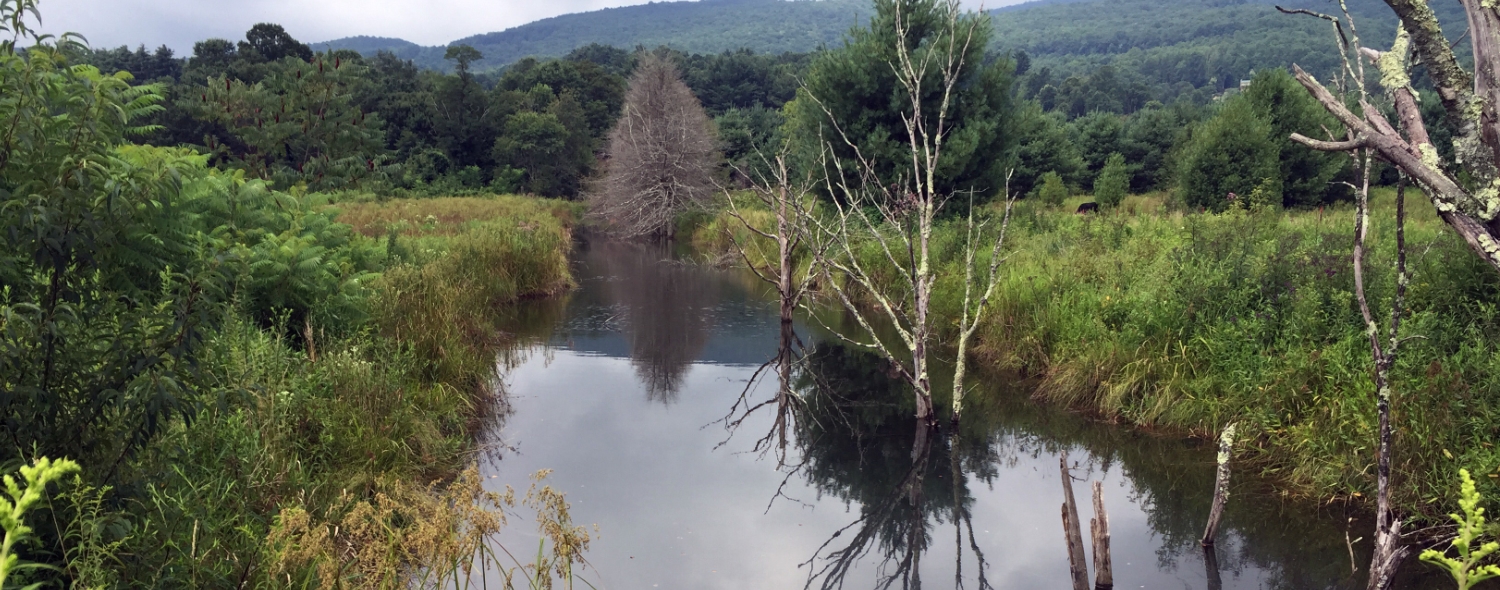Environmental Consulting and Wetlands
Environmental Consultants
Here at Brushy Fork Environmental Consulting, Inc., one of the main services we provide as environmental consultants to the residents of Eastern Tennessee and Western North Carolina are Jurisdictional Wetland Determinations. Wetlands and streams are considered Waters of the United States and must be identified before construction or development in order to avoid them. A wetland, often known as a marsh, swamp or bog, is an area of land with enough water to keep the soil saturated year-round. Some wetlands have standing water, especially on the coast, but here in the Blue Ridge, they are often areas where the soil is saturated enough to support a variety of water-loving plants and may or may not have standing water. The water supply for wetlands may be supplied by groundwater, a nearby body of water, or even stormwater drainage, but they all support both plants and animals that rely on this constant source of moisture. Due to these qualities, wetlands are essential habitat to a wide variety of plants, animals, and especially humans.

Cost-Benefit Analysis for Developers
For example, if you are a developer wishing to build an outdoor recreation center on a multi-acre property, it would be beneficial to have lovely scenic streams and wetlands on your property for your guests to enjoy along with all the amenities you plan on building. However, if there are too many areas that are delineated as “Waters of the United States”, then it may be too costly to permit stream and wetland impacts. Brushy Fork can help with cost-benefit analysis and deciding if there is enough available acreage on the property to achieve your vision.
Wetland environments provide people several essential ecosystem services including water filtration, erosion and flood control, food, and recreation. Especially in eastern Tennessee and western North Carolina where we often rely on wells for our water sources, wetlands can filter out contaminants that may leech into your water supply. Similarly, wetlands slow down the speed of stormwater flow and store the excess water, reducing soil erosion and flooding. Food is also provided to us by wetlands, with North Carolina producing 55 million dollars in fish and shellfish that rely on wetlands in 2016.
“The Brushy Fork team would love to help you delineate the locations of your wetlands and streams so that you can develop your home or business”

Last but certainly not least, wetlands are simply enjoyable to visit, with dynamic and differing plant and animal communities. Many birds rely on wetlands when migrating, so if you have a wetland on your property you won the birding lottery! Frogs, salamanders, and even fish use wetlands as spawning grounds, which can be fun and educational viewing for children and adults. The Brushy Fork team would love to help you delineate the locations of your wetlands and streams so that you can develop your home or business, while also keeping these important habitats safe so that everyone can continue to enjoy the benefits for years to come!
